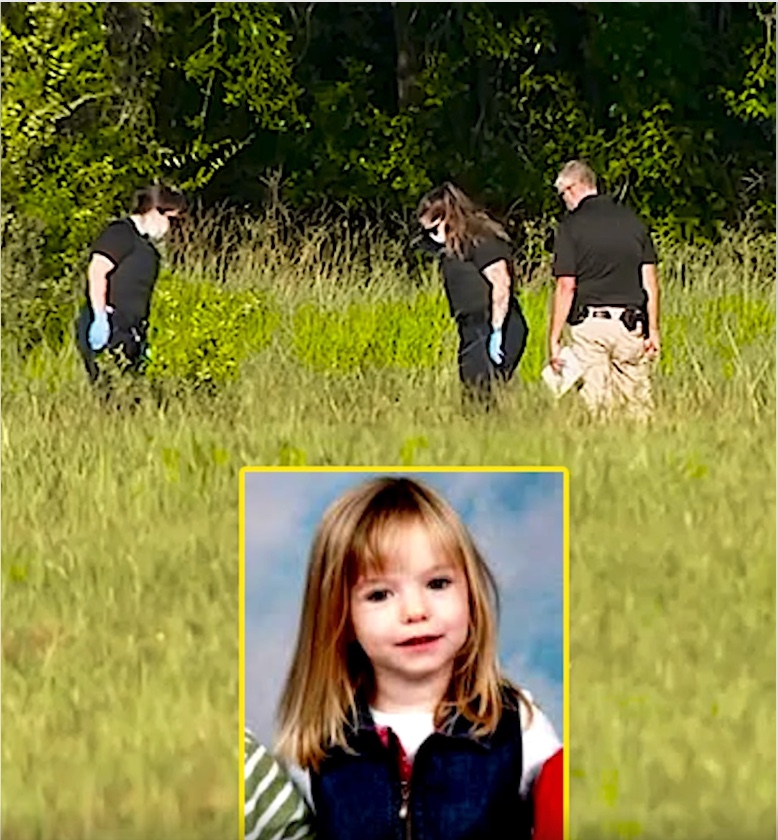The silence of the forest in Leavenworth, Washington, was shattered by the unthinkable discovery. At a secluded campsite, authorities uncovered a scene that would haunt even the most seasoned investigators: three little girls, bound and suffocated, their young lives cut short in a manner too cruel to comprehend. Their names—Paityn, just nine years old, Evelyn, only eight, and Olivia, barely five—are now etched into the national conscience as symbols of innocence stolen far too soon.

The horror of the discovery was compounded by the identity of the suspected killer. It was not a stranger, not a passing predator, but their own father, Travis Decker, a man with years of military training and a reputation for discipline and control. Now he is on the run, armed with dangerous skills and shadowed by allegations so dark they have left the nation reeling. But perhaps most devastating of all is the knowledge that these deaths might have been prevented, if only the system had listened to the desperate cries of their mother.
Whitney Decker has become the voice of unimaginable grief, her words trembling but resolute as she recounts her battle to be heard. For weeks, months even, she had warned authorities that her children were not safe with Travis. She told them of his struggles—his post-traumatic stress disorder, his fragile grip on stability, his troubling diagnosis of borderline personality disorder. She described her growing fear that visitation could place her girls in danger. Yet each time she pleaded for help, the response was muted, procedural, dismissive.
When Travis failed to return the girls after his visitation, Whitney’s terror ignited into full alarm. She called the police, insisting something was terribly wrong. She begged for an Amber Alert, a signal that could have mobilized an entire state within hours. But she was told her fears did not “meet the criteria.” To those who have never lost a child, such bureaucratic language may seem harmless. To Whitney, it was a death sentence.
Her attorney, Arianna Cozart, has since spoken bluntly about the failures. Whitney, she explained, had done everything a mother could. She had reported Travis’s deteriorating state of mind, documented his volatility, and begged for urgent intervention. But in the eyes of the system, it was not enough. “We may never know if an Amber Alert would have saved their lives,” Cozart admitted, “but it could have made a difference.” That difference was all Whitney had asked for, and it was denied.
Experts across the country are now pointing to the Decker tragedy as proof of a devastating blind spot in how we handle custody disputes entwined with mental health crises. Too often, the burden of proof to trigger state intervention is impossibly high, requiring parents to demonstrate near certainty of danger before any action is taken. But parents know. They recognize the small signs, the tightening patterns of instability, the way fear creeps into daily life long before it erupts into violence. When those warnings go unheard, the results can be catastrophic.
This case has since exploded into the public sphere. Social media is flooded with hashtags like #JusticeForTheDeckerGirls and #ListenToMothers, demanding sweeping reforms. Commentators and activists are calling for lowered thresholds to issue Amber Alerts, for mandatory mental health evaluations in high-conflict custody cases, and for law enforcement to treat parental warnings with urgency instead of skepticism.
The images of three young sisters—smiling in family photos, full of life and possibility—are impossible to reconcile with the details of their deaths. They should have been playing in their backyard, learning in their classrooms, dreaming about their futures. Instead, they became victims not only of a father’s violence but of a system that hesitated when hesitation was lethal.
Whitney’s grief is unimaginable, but she has vowed that her daughters’ names will not fade into statistics. She is demanding that their story ignite change, that their loss forces the country to confront its failures. “No parent should have to beg to be heard,” she said through tears. “And no child should pay the price for being ignored.”
Meanwhile, Travis Decker remains at large, his background in the military amplifying the sense of danger. Authorities warn the public to be cautious, but the true threat lies not only in one man’s actions but in the silence of a system that enabled them.
As the investigation continues, the nation is left grappling with impossible questions. How many mothers and fathers have seen the storm coming, only to be told their fears are unfounded? How many tragedies have been written in the ink of bureaucracy and delay? And how many more children must be lost before the pleas of parents are treated as the urgent alarms they truly are?
Three young sisters are gone, and nothing will bring them back. Their absence is a wound that will never close, a reminder of how fragile safety can be when warnings go unheeded. But their story has become more than just a tragedy. It is a rallying cry, a call to action, a demand that the voices of parents—especially those who know their children best—are never again silenced by protocol.
In the quiet of Leavenworth’s woods, where laughter should have echoed but tragedy was found instead, three little girls lost their lives. Their mother tried to save them. Her words, ignored then, now ring louder than ever. The nation listens at last, but far too late.



